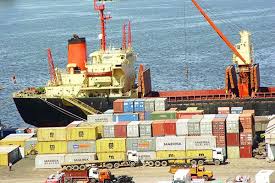Tanzania’s Decision to Suspend the Bagamoyo Port Project: A Surprise Blow against China’s Silk Road Vision for East Africa

The East African country has the proud distinction of hosting China’s first modern-day Silk Road, the 1970s TAZARA railway, which is why Tanzania’s decision to suspend the $10 billion Bagamoyo port project that was supposed to be built by the People’s Republic is such a big deal and could greatly hamper Beijing’s regional strategy.
Tanzania’s nationalist leader John Magafuli just dealt a surprise blow to China’s Silk Road vision for East Africa by suspending the $10 billion Bagamoyo port project that was supposed to figure prominently in the regional connectivity vision being pursued by the People’s Republic. His reasoning was that “they want us to give them a guarantee of 33 years and a lease of 99 years, and we should not question whoever comes to invest there once the port is operational. They want to take the land as their own but we have to compensate them for drilling construction of that port”, which he described as “exploitative and awkward”. This decision was all the more unexpected because the East African country has the proud distinction of hosting China’s first modern-day Silk Road, the 1970s TAZARA railway, and its Foreign Minister was just in Beijing a few days prior where his counterpart praised their historical cooperation as an example for other Belt & Road Initiative (BRI) countries to follow.
This sudden setback jeopardizes the enhanced regional connectivity role that Tanzania was poised to play in Beijing’s BRI plans for Africa but might also interestingly endear Magufuli to the West once more after recently falling out of their favor for his socio-conservative policies. Judging by his remarks, he feels uncomfortable with the excessive amount of influence that China could wield in his country through what he apparently believes is the lopsided Bagamoyo deal, which in a sense is reminiscent of the reason why Myanmar distanced itself from China earlier in the decade over similar concerns stemming from the Myitsone Dam project. If the Myanmar Model is actually in effect in Tanzania, however, then it would suggest that Tanzania might one day return to China’s embrace like Myanmar once again has if the pro-Western rapprochement brought about by its anti-Chinese policy moves doesn’t yield tangible results.
In any case, the abrupt move to back out of this gargantuan infrastructure project might set into motion a regional chain reaction that could negatively impact the prospects of expanding China’s Standard Gauge Railroad (SGR) in neighboring Kenya into Uganda, Rwanda, the Congo, and beyond, especially if it inspires “economic nationalism” at the grassroots level throughout the rest of the East African Community. Furthermore, this development creates a strategic opening for the joint Indo-Japanese “Asia-Africa Growth Corridor” (AAGC) to replace China’s role with American and Emirati assistance if there’s enough political will to do so, which might be predicated on creating a precedent for how to reverse China’s Silk Road influence in Africa. Whatever may or may not happen next, there’s no doubt that the suspension of the Bagamoyo port project is a huge blow to Beijing’s regional influence and advances America’s strategic objectives in the New Cold War.
*
Note to readers: please click the share buttons above or below. Forward this article to your email lists. Crosspost on your blog site, internet forums. etc.
This article was originally published on Eurasia Future.
Andrew Korybko is an American Moscow-based political analyst specializing in the relationship between the US strategy in Afro-Eurasia, China’s One Belt One Road global vision of New Silk Road connectivity, and Hybrid Warfare. He is a frequent contributor to Global Research.

